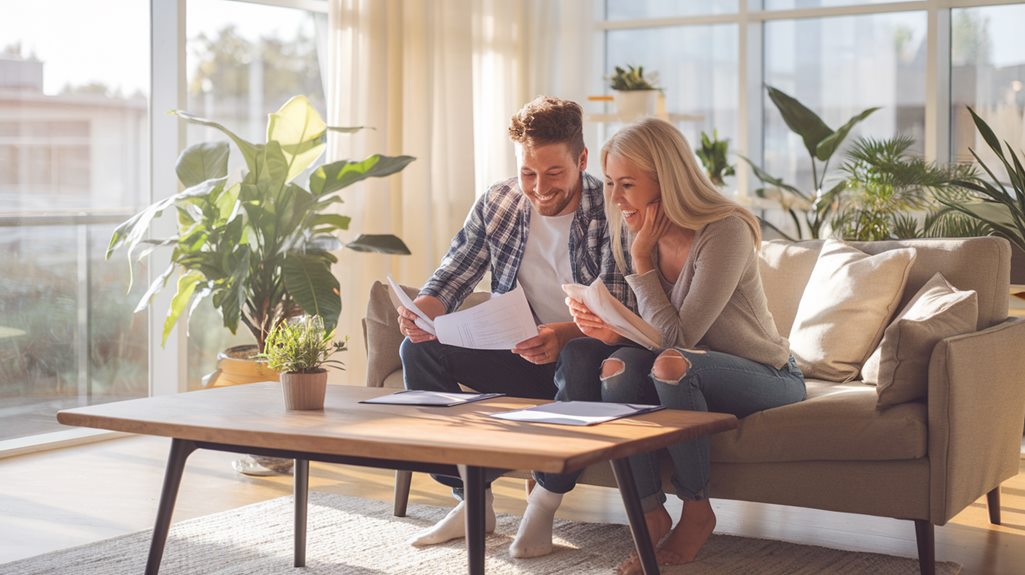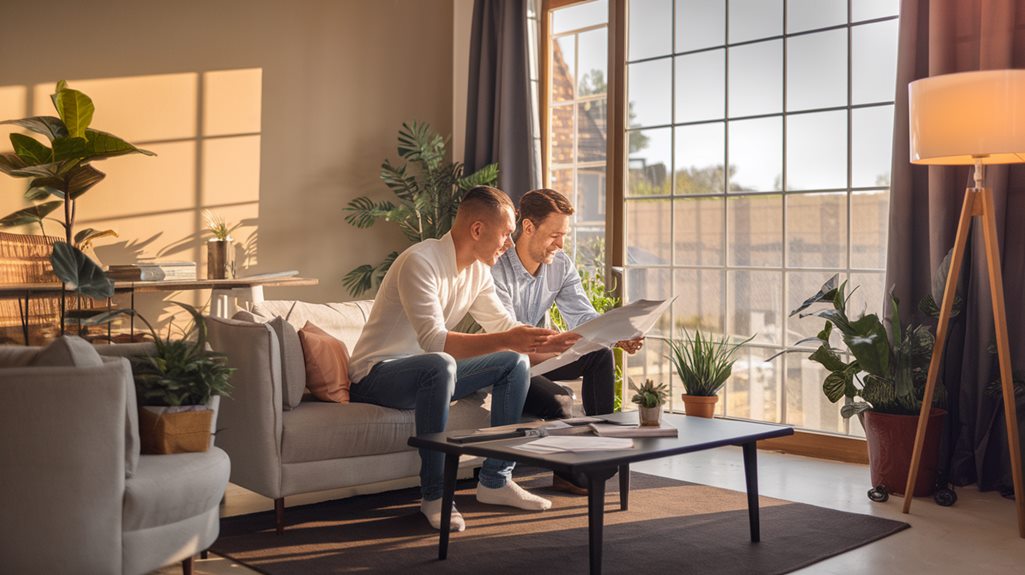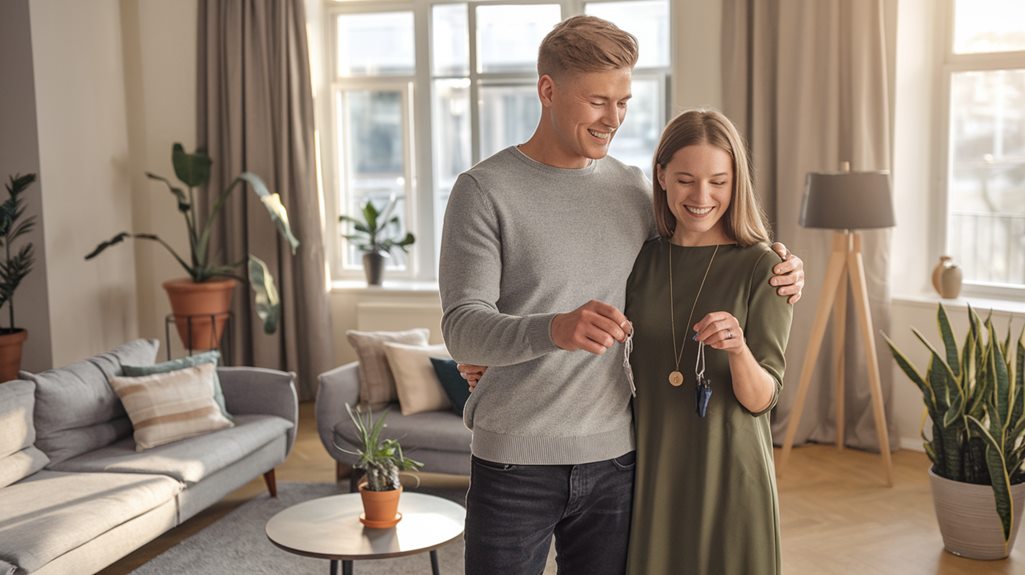Start your journey to owning a home by looking at your money situation. Check your credit score and see how much you owe compared to how much you earn. Make a budget that works for you. Cut out things you don't really need and save money.
Look at different mortgage options; the better your credit score, the better deals you can get.
Finding the right realtor is super important. Choose someone who knows a lot and understands what you want. When you're ready, start looking for houses. Be open to different options.
When you find the home you love, make a smart offer based on how the market is doing. As you get closer to buying, make sure all your paperwork and money details are correct.
There are many tips that can help you on your way to your dream home!
Ready to start building equity in your own Michigan home? Get your personalized home loan quote today.
Assess Your Financial Situation

Are you thinking about buying your first home? That's exciting! But before you start looking, it's important to check your money situation.
First, look at your credit score. This number is very important because it helps banks decide if they'll lend you money and how much interest you'll pay. A good score can help you save money in the long run.
Next, think about how much money you owe compared to how much you earn. You want this number to be low. It shows lenders that you can manage your money well.
Make sure you have some savings saved up. This should include an emergency fund to help with any unexpected costs. It's like having a safety net!
It's also good to learn how to budget. This means keeping track of what you spend and what you save. It will help you make smart choices with your money.
By doing all these things, you'll be better prepared to buy a home.
And when you do, you'll feel like you belong in your new neighborhood. So, take your time, plan well, and soon you might be in your dream home!
Michigan residents, unlock the door to your new home. Request your home loan quote from Treeside Financial today.
Set a Realistic Budget
Making a budget is really important when you want to buy a home. It helps you know how much money you can spend. Here are some simple steps to help you:
- Look at how much money you make each month and how much you spend. This will show you how much extra money you have.
- Think about things you don't really need to buy. Cut back on those to save more money.
- Make a plan to save money just for buying a home.
- Remember that owning a home costs more than just buying it. You'll need money for fixing things and keeping it nice.
- Ask a financial expert for help if you need it. They can give you good advice.
Explore Mortgage Options

Getting the right mortgage is super important when buying a home. It helps to know what choices you have.
You might be closer to buying your home than you think
Take our 2-minute home buyer readiness quiz to see how prepared you really are – no credit check required.

First, learn about fixed rates and adjustable rates. They each have special benefits that fit your money needs. Your credit score is also important. A higher score can get you better interest rates and loan options.
Before you get pre-approved, gather all your documents. Know that your down payment can change your mortgage too.
Don't just take the first loan offer you see. Compare different lenders to find one that works best for you.
Find the Right Realtor
Finding the right realtor is very important. They can help you buy a home with confidence and make it easy for you.
You want someone who knows a lot about the area and has good skills. It's also important that they talk to you clearly, so you always know what's going on and feel good about the choices you make.
Realtor Qualifications Matter
Finding the right realtor is very important when you want to buy a home. A good realtor does more than just show you houses; they help you find the best one for you.
Here are some things to think about when choosing a realtor:
- Realtor Certifications: Look for realtors who've special training and certificates.
- Realtor Experience: Pick someone who knows a lot about the homes in your area.
- Realtor Specialties: Some realtors help first-time buyers, while others know a lot about fancy homes or certain neighborhoods.
- Realtor Referrals: Talk to your friends and family to see if they've someone they trust.
- Realtor Ethics: Make sure your realtor is honest and does their job well.
A good realtor is also great at talking and can use technology to help you find homes faster.
With the right person by your side, you'll feel happy and ready to start looking for your dream home!
Local Market Expertise
When you want to buy a home, having a realtor who knows the area can really help you. They know what's happening in the neighborhood and can show you the best places to live.
Imagine having someone who can tell you which areas are getting better and which have fun things nearby that you like. They can help you find a place where you feel at home.
A good realtor knows all the little secrets about the neighborhoods. They'll help you find not just a house, but a home in a place that feels right for you.
They think about important things like schools, parks, and stores to make sure it's a great fit for you and your family. They know the local trends, so you can make smart choices and find the perfect home for you.
Choose someone who knows the area well!
Effective Communication Skills
Finding the perfect home can be a big adventure! Having a realtor who talks and listens well is super important. They'll make sure they understand what you want.
Here's how a great realtor can help you:
- Listen closely to what you like and what you need.
- Explain clearly what happens when buying a home.
- Turn your needs into searches for homes that fit you.
- Negotiate strongly with sellers to get the best deal.
- Give you updates so you always know what's happening.
When you pick a realtor who's good at these things, you'll feel understood and excited about finding your new home.
Together, you'll get closer to owning the home of your dreams!
Begin House Hunting

Starting your house hunt is exciting! It's important to have a plan and know what you want.
First, think about what you need in your neighborhood. Do you want to be near schools, parks, or fun places to hang out? Look online to find areas that feel like home to you.
Use your knowledge of the market and online tools to find homes that fit what you're looking for. Make sure to visit the houses that catch your eye.
Make an Offer
When you want to make an offer on a home, it's important to look at what's happening in the market.
This helps you and your agent figure out the best way to make your offer. You want to make sure it fits your budget and what you want.
With a smart plan, you can get the home of your dreams without paying too much.
Assess Market Conditions
Navigating the world of real estate can be tricky. Before you decide to make an offer, it's important to look closely at the market. Knowing what's happening with prices and homes can help you make smart choices.
Here are some simple things to think about:
- Supply and Demand: Are there a lot of homes for sale but not many buyers? Or is it the other way around?
- Time on Market: How long do homes usually stay for sale before someone buys them?
- Comparable Sales: What prices have similar homes sold for recently?
- Interest Rates: Are interest rates going up or down? This can change how much you can afford.
- Economic Indicators: What's going on in the economy overall?
Paying attention to these things can help you find the right home for you!
Negotiate Purchase Terms
When you want to buy a home, it helps to know what's happening in the market. This way, you can talk about the price with confidence. Start by writing a clear purchase agreement that shows you've done your homework and offers a fair price. If the first offer isn't good for you, it's okay to make a counter offer.
Make sure you understand how you'll pay for the home and be ready to talk about earnest money. This shows you're serious about buying.
Also, think about inspection contingencies. These are important because they protect your money. You can also talk about closing costs and ask the seller for help with some of the costs. This can make buying the home easier for you.
By understanding what you need and what the seller wants, you can create a good deal for both of you. This helps you feel like you belong in the homebuying community, where making smart choices leads to happy endings.
Close the Deal

Closing the deal is the last step in your journey to buy a home. You're about to start a new adventure!
To make sure everything goes well, follow these important steps:
- Look at closing costs: Know what fees you'll pay, so there are no surprises.
- Get buyer's insurance: This helps keep your new home safe.
- Sign papers: Read and sign all the important documents carefully.
- Do a final walk-through: Check the home one last time to make sure everything is just right.
- Send your money: Move the money needed to complete the deal.
These steps will help you feel happy and excited about being a homeowner.
Enjoy this special moment as you say goodbye to renting and hello to your new home!








